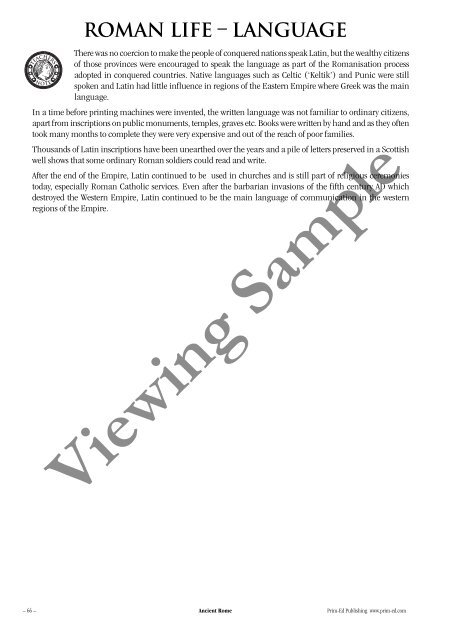You also want an ePaper? Increase the reach of your titles
YUMPU automatically turns print PDFs into web optimized ePapers that Google loves.
TEACHERS<br />
N OTE<br />
Roman Life – Language<br />
There was no coercion to make the people of conquered nations speak Latin, but the wealthy citizens<br />
of those provinces were encouraged to speak the language as part of the Romanisation process<br />
adopted in conquered countries. Native languages such as Celtic (‘Keltik’) and Punic were still<br />
spoken and Latin had little influence in regions of the Eastern Empire where Greek was the main<br />
language.<br />
In a time before printing machines were invented, the written language was not familiar to ordinary citizens,<br />
apart from inscriptions on public monuments, temples, graves etc. Books were written by hand and as they often<br />
took many months to complete they were very expensive and out of the reach of poor families.<br />
Thousands of Latin inscriptions have been unearthed over the years and a pile of letters preserved in a Scottish<br />
well shows that some ordinary Roman soldiers could read and write.<br />
After the end of the Empire, Latin continued to be used in churches and is still part of religious ceremonies<br />
today, especially Roman Catholic services. Even after the barbarian invasions of the fifth century AD which<br />
destroyed the Western Empire, Latin continued to be the main language of communication in the western<br />
regions of the Empire.<br />
Viewing Sample<br />
– 66 – <strong>Ancient</strong> <strong>Rome</strong> Prim-Ed Publishing www.prim-ed.com

















